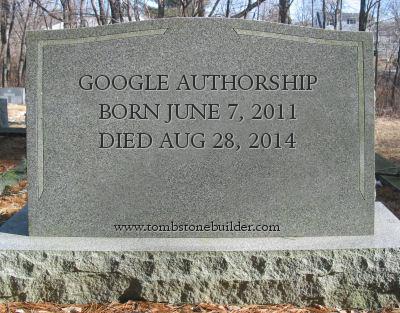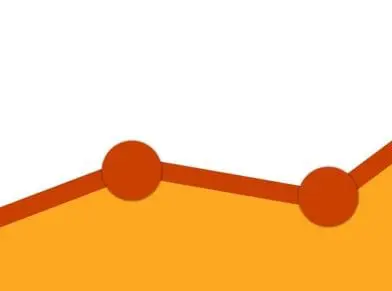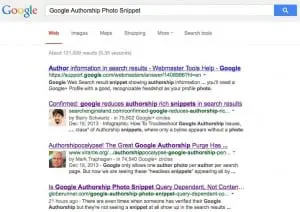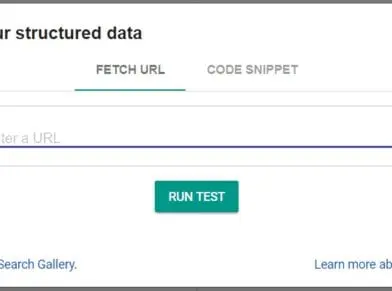GOOGLE OFFICIALLY REMOVES GOOGLE AUTHORSHIP, CLAIMS IT WAS ONLY A TEST

Google has officially removed Google Authorship. Apparently they’re calling this one of their tests that they decided to remove. That’s interesting, as I actually thought that Google was actually using Google Authorship as a search engine ranking factor, and it was fully integrated into the Google organic search algorithm. But apparently we were all hoodwinked, it was only a test. And all tests must come to an end.
In a Google Plus post today, John Mueller announced the end of the Google Authorship test:
I’ve been involved since we first started testing authorship markup and displaying it in search results. We’ve gotten lots of useful feedback from all kinds of webmasters and users, and we’ve tweaked, updated, and honed recognition and displaying of authorship information. Unfortunately, we’ve also observed that this information isn’t as useful to our users as we’d hoped, and can even distract from those results. With this in mind, we’ve made the difficult decision to stop showing authorship in search results.
(If you’re curious — in our tests, removing authorship generally does not seem to reduce traffic to sites. Nor does it increase clicks on ads. We make these kinds of changes to improve our users’ experience.)
Frankly, I really liked Google Authorship, and am sad to see the Google Authorship test be completed. What did Google Authorship do for me? It caused me to want to write more, to write great content, and claim my authorship: and be proud of what I write. To show it off, so to speak. To tell everyone that I am the one who wrote the content, and no one else. That’s ultimately good for the web, and good for users. Apparently it just wasn’t good enough for Google. After all, it was just a test.
So, at this point, what are we supposed to do with Google Authorship? What about the code that we put on our websites?
Leave the Authorship Code
Well, you can leave the code on your website and the websites that you wrote for. It will, in no way, harm your website or your search engine rankings–or the search engine rankings of where that content appears. John Mueller from Google has confirmed that it’s perfectly fine to leave the code alone. It might actually help users to know that you were the one who wrote the content, and it provides a link to your Google Plus profile. That might provide some additional interaction.
What about Google Publishership
Officially, Google has stated that Google Publishership is totally unaffected by this announcement. So, Google Publishership is alive and well, and Google will apparently still be using it in some way or fashion. So, it’s important to make sure that your Google Publishership code is applied to all pages on your site, and it links back to your site’s Google Plus profile page (your business page).
Google introduced Google Authorship back on June 7, 2011. The Google Authorship test was killed today, August 28, 2014.


















